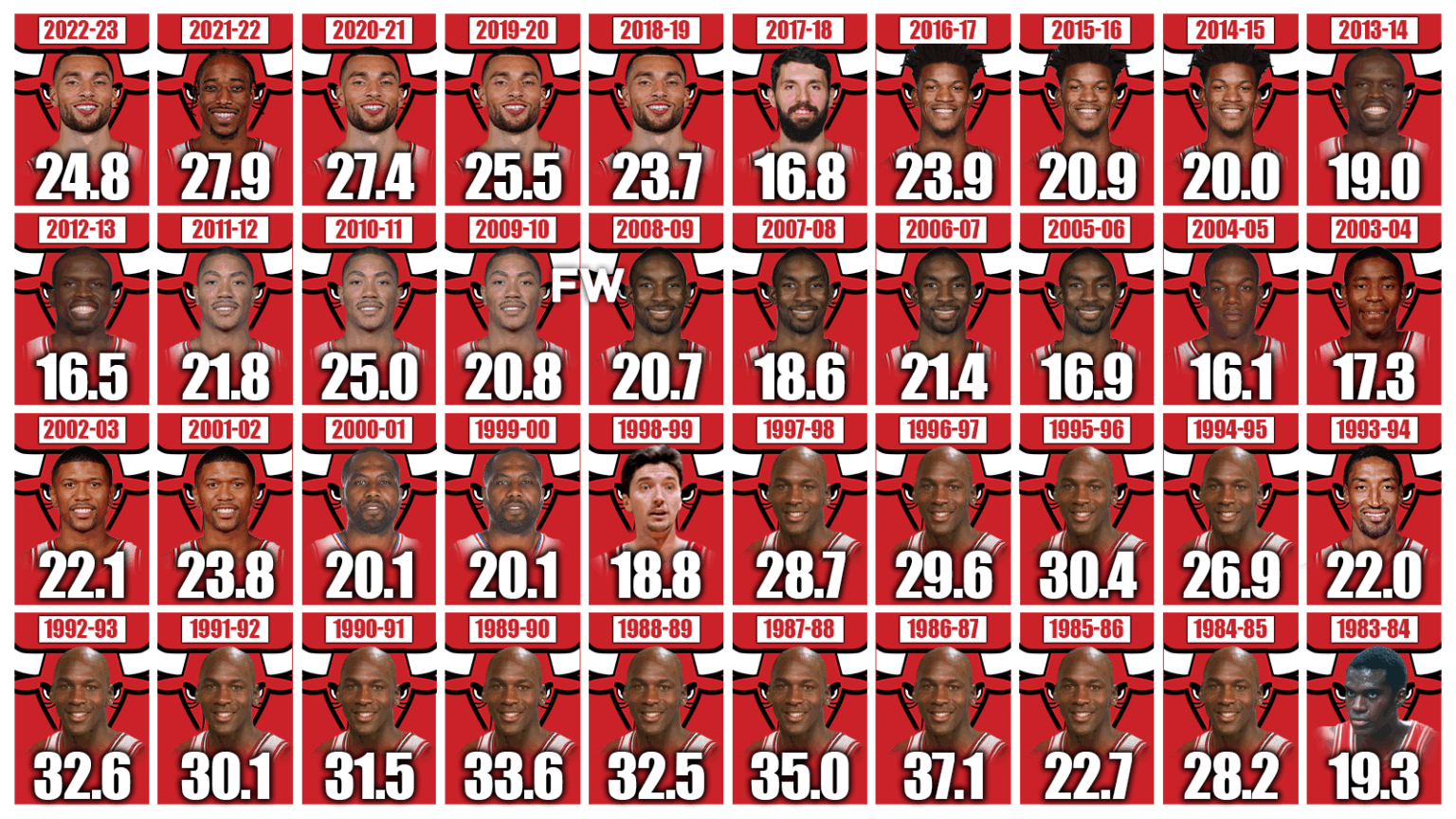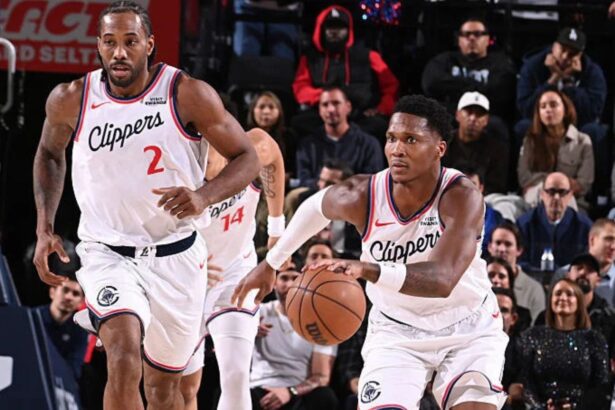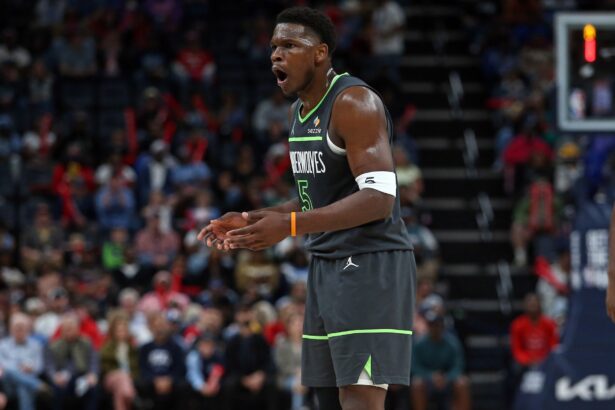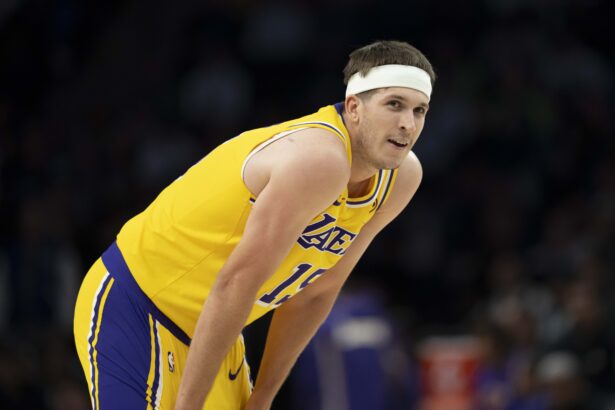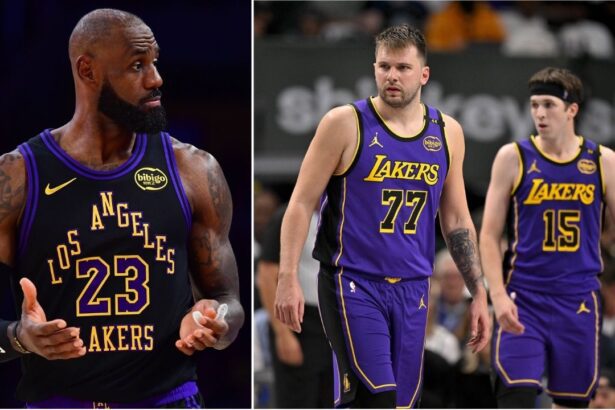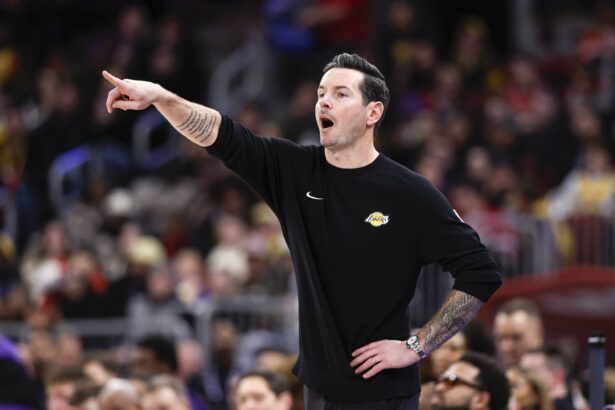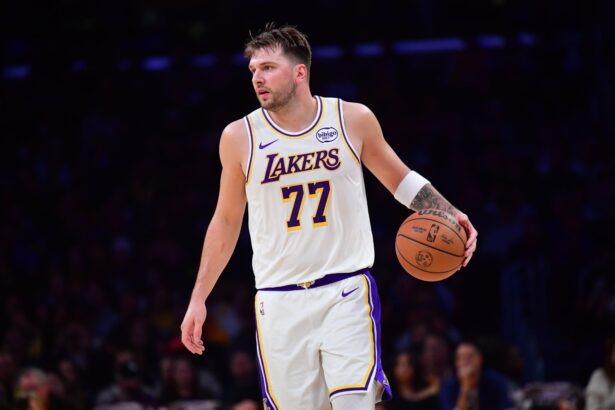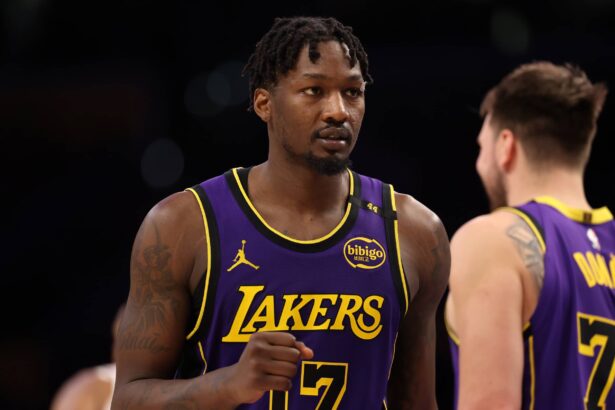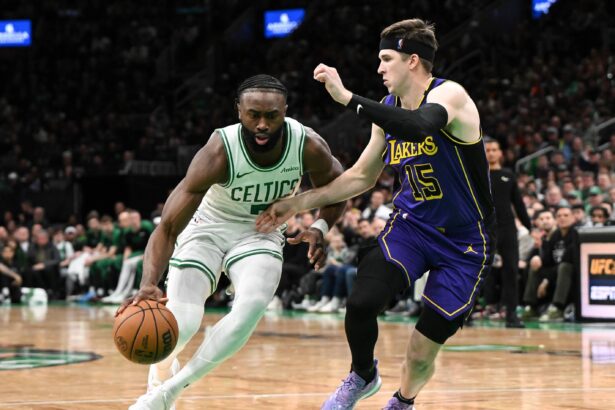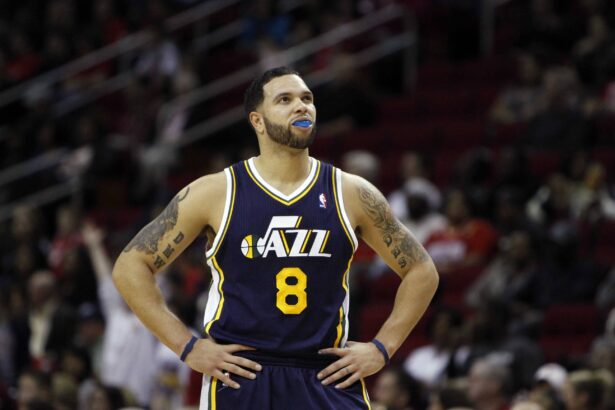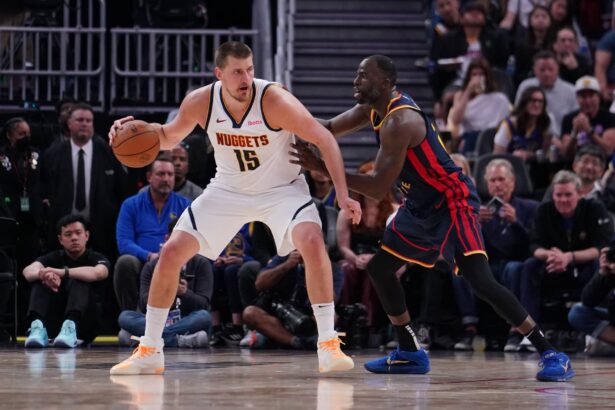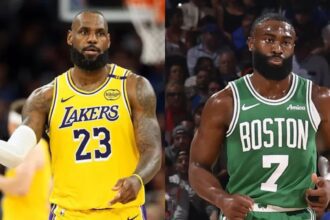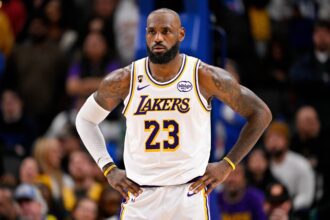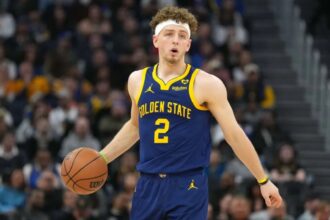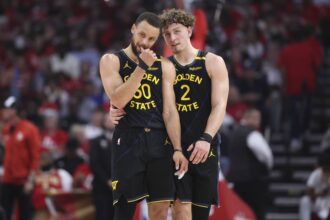- Michael Jordan won an NBA record 10 scoring titles as a member of the Chicago Bulls
- Ben Gordon and Zach LaVine are the only other players to lead the Bulls in scoring at least four times over the last 40 seasons
- The Chicago Bulls have not had a player win the NBA scoring title since Michael Jordan in 1998
Since 1966-67, the Chicago Bulls have had some of the greatest scorers in NBA history call their arena home. Of course, there is the GOAT Michael Jordan, MVP Derrick Rose, and more who have led the Bulls on the offensive end of the floor. Our focus below will be on the Bulls and their best players when it comes down to solely scoring the basketball in the last 40 years.
- 1983-84 Season – Orlando Woolridge – 19.3 PPG
- 1984-85 Season – Michael Jordan – 28.2 PPG
- 1985-86 Season – Michael Jordan – 22.7 PPG
- 1986-87 Season – Michael Jordan – 37.1 PPG
- 1987-88 Season – Michael Jordan – 35.0 PPG
- 1988-89 Season – Michael Jordan – 32.5 PPG
- 1989-90 Season – Michael Jordan – 33.6 PPG
- 1990-91 Season – Michael Jordan – 31.5 PPG
- 1991-92 Season – Michael Jordan – 30.1 PPG
- 1992-93 Season – Michael Jordan – 32.6 PPG
- 1993-94 Season – Scottie Pippen – 22.0 PPG
- 1994-95 Season – Michael Jordan – 26.9 Points Per Game
- 1995-96 Season – Michael Jordan – 30.4 PPG
- 1996-97 Season – Michael Jordan – 29.6 PPG
- 1997-98 Season – Michael Jordan – 28.7 PPG
- 1998-99 Season – Toni Kukoc – 18.8 PPG
- 1999-00 Season – Elton Brand – 20.1 PPG
- 2000-01 Season – Elton Brand – 20.1 PPG
- 2001-02 Season – Jalen Rose – 23.8 PPG
- 2002-03 Season – Jalen Rose – 22.1 PPG
- 2003-04 Season – Jamal Crawford – 17.3 PPG
- 2004-05 Season – Eddy Curry – 16.1 PPG
- 2005-06 Season – Ben Gordon – 16.9 PPG
- 2006-07 Season – Ben Gordon – 21.4 PPG
- 2007-08 Season – Ben Gordon – 18.6 PPG
- 2008-09 Season – Ben Gordon – 20.7 PPG
- 2009-10 Season – Derrick Rose – 20.8 PPG
- 2010-11 Season – Derrick Rose – 25.0 PPG
- 2011-12 Season – Derrick Rose – 21.8 PPG
- 2012-13 Season – Luol Deng – 16.5 PPG
- 2013-14 Season – Luol Deng – 19.0 PPG
- 2014-15 Season – Jimmy Butler – 20.0 PPG
- 2015-16 Season – Jimmy Butler – 20.9 PPG
- 2016-17 Season – Jimmy Butler – 23.9 PPG
- 2017-18 Season – Nikola Mirotic – 16.8 PPG
- 2018-19 Season – Zach LaVine – 23.7 PPG
- 2019-20 Season – Zach LaVine – 25.5 PPG
- 2020-21 Season – Zach LaVine – 27.4 PPG
- 2021-22 Season – DeMar DeRozan – 27.9 PPG
- 2022-23 Season – Zach LaVine – 24.8 PPG
Most of these orchestrators of offense have been elite at one facet of scoring whether it was on the inside as a post player or from the perimeter as a shot creator and shooter. Then, there are the truly special offensive talents who mastered being able to score from all three levels. These are the players who can only be considered as the most elite among the group.
As we travel back in time over the last 40 years, just as we did recently with the Los Angeles Lakers, we will break down the top scorers in Bulls history season by season. We will discuss the impact their scoring had on their team at the time as well as break down how they were able to lead Chicago in scoring for that specific season.
These are the best scorers for the Chicago Bulls over the last 40 seasons.
1983-84 Season – Orlando Woolridge – 19.3 PPG
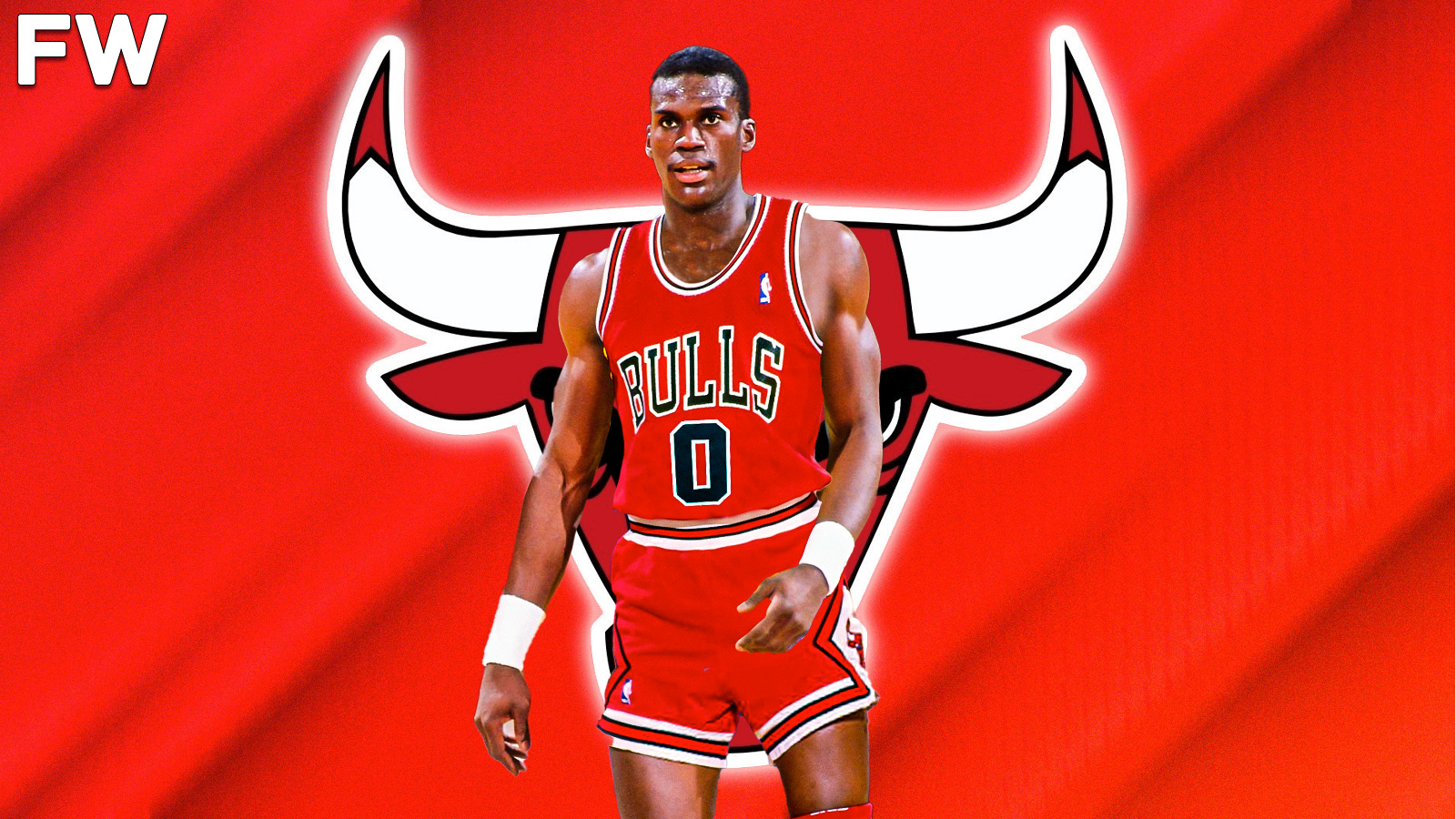
For all intents and purposes, the 1983-84 Chicago Bulls were not a good basketball team. They would win just 27 games to 55 losses and miss the playoffs entirely. The Bulls would have the 22nd-ranked offense out of 23 teams averaging just 103.7 PPG which also fell into the bottom five out of 23 teams. Leading this team as their leading scorer would be small forward Orlando Woolridge with just 19.3 points per game.
This was Woolridge’s third season in the NBA after the Bulls made him their sixth overall pick in the 1981 NBA Draft. Woolridge’s 19.3 points per game led slightly over Quintin Dailey’s 18.2 points per game. The part that stands out about Woolridge’s scoring is the fact that he shot an efficient 52.5% from the field overall but just 71.5% from the foul line. Although he would continue to improve as an overall player, this would be the final season in which he led the team in scoring thanks to an up-and-coming star looming in the 1984 NBA Draft.
1984-85 Season – Michael Jordan – 28.2 PPG
With their third overall pick in the 1984 NBA Draft, the Chicago Bulls selected Michael Jordan out of the University of North Carolina. Little did the Bulls know that this pick would change the trajectory of their franchise forever. Michael Jordan would take the league by storm as a rookie, averaging 28.2 points, 6.5 rebounds, 5.9 assists, and 2.4 steals per game on 51.5% shooting from the field.
Jordan would take home Rookie of the Year honors for his effort, winning the award by 37.5 points over Hakeem Olajuwon. Jordan would also finish sixth in MVP voting and improve the Bulls’ win total by 11 to help Chicago qualify for the NBA playoffs. In the playoffs, Jordan and the Bulls would be ousted in the first round by the Milwaukee Bucks led by Terry Cummings who became the only player to outscore Michael Jordan in a playoff series in his career. Jordan finished with 29.5 points per game on 43.5% shooting but Chicago managed just one win in the series.
1985-86 Season – Michael Jordan – 22.7 PPG
This season comes with a bit of an asterisk next to it for Michael Jordan. Just three games into the year, Jordan would come down awkwardly on his foot, breaking a bone on the top of it and missing the next five months of action as the Bulls felt the need to protect their franchise superstar at all costs. Once he returned in March, Jordan was put on a minute restriction that allowed him to play no more than 20 minutes per contest.
Still, Jordan would finish the season with 22.7 points per game to finish the season and shot the ball 45.7% from the field. He also added 3.6 rebounds, 2.9 assists, and 2.1 steals per game. Jordan and the Bulls would qualify for the NBA playoffs where although they were swept by the eventual NBA champion Boston Celtics, he put the NBA on notice.
Jordan would average 43.7 points per game in the series against the Celtics including a monstrous 63-point performance in Game 2. He would shoot 50.5% from the field overall in the series but the end result would haunt him for the entire offseason.
1986-87 Season – Michael Jordan – 37.1 PPG
The 1986-87 season would be the beginning of seven straight scoring titles for Michael Jordan. Jordan would have an incredible season for the Bulls that saw him lead the NBA with 37.1 points per game on 48.2% shooting from the field. He also added 5.2 rebounds, 4.6 assists, 2.9 steals, and 1.5 blocks per game on the year. Jordan would finish runner-up to Magic Johnson for the MVP award as he led the Bulls to 40 wins and another trip to the NBA playoffs.
Once again in the NBA playoffs, the Bulls would have the unfortunate task of facing off against the powerhouse Boston Celtics. In this series, the results would be all too familiar for Jordan as his Bulls were swept in three games by Larry Bird and company. Jordan would lead all scorers with 35.7 points per game while shooting 41.7% from the floor and 40.0% from three on just five attempts from beyond the arc in total.
For the second straight season, Jordan found himself sent home early by a far superior Boston team but the losses continued to light a fire under him that soon came to the surface, and no opponent would be able to slow down.
1987-88 Season – Michael Jordan – 35.0 PPG
The 1987-88 season would arguably be the greatest season in Michael Jordan’s career. Not only would he take home his second straight scoring title with 35.0 points per game but he would also win his first steals title, Defensive Player of the Year, and his first MVP award. Overall, he averaged 35.0 points, 5.5 rebounds, 5.9 assists, 3.2 steals, and 1.6 blocks per game. The Bulls would finish over .500 for the first time with Jordan on their roster, finishing 50-32 on the season.
In the NBA playoffs, Jordan and the Bulls would finally find some success with a hard-fought first-round win over the Cleveland Cavaliers. In the series, Jordan would average 45.2 points per game on 55.9% shooting, tormenting Cavaliers fans for the first of many times in his career.
In the following series, Jordan and the Bulls would be battered and bruised by the Bad Boys of Detroit. The Pistons would defeat the Bulls in five games despite 27.4 points per game on 49.1% shooting from Jordan. The Pistons’ strategy of imposing a physically violent gameplan against Jordan worked to perfection and the Bulls were sent home early once again.
1988-89 Season – Michael Jordan – 32.5 PPG
The 1988-89 season would mark the third straight scoring title for Michael Jordan. On top of his amazing offensive display, he would also add 8.0 rebounds, 8.0 assists, and 2.9 steals per game. Thanks to Jordan, the Bulls would have the 12-best offense in the NBA and finish with an overall record of 47-35 on the season.
Jordan would finish runner-up to Magic Johnson once again in the MVP race in a vote decided by 66.5 points overall. The NBA playoffs would get started with Jordan and the Bulls taking down the Cavaliers in five games once again. In Game 5, Jordan would knock down his iconic series-clinching jumper over Craig Ehlo and average 39.8 points per game to lead Chicago to victory. In the following round, Jordan and the Bulls would defeat the New York Knicks in six games led by Jordan’s 35.7 points per game on 55.0% shooting.
In the Eastern Conference Finals, the Bulls would once again meet the Bad Boy Detroit Pistons for a chance at the NBA Finals. The Pistons were just as brutal and relentless in their defense of Jordan and his attacks on the rim. The result would be a six-game loss at the hands of Detroit. Jordan would average 29.7 points per game on 46.0% shooting. No other teammate averaged over 12.0 points per game in the series.
1989-90 Season – Michael Jordan – 33.6 PPG
The 1990 NBA season would be the last one for quite some time that Michael Jordan and the Bulls would remain ringless. In the regular season, the Bulls would win 55 games and have their best year with Michael Jordan on the team to date. He would finish with 33.6 points per game on 52.6% shooting as well as 6.9 rebounds, 6.3 assists, and 2.8 steals per game. The Bulls would have the fifth-best-ranked offense in the NBA as they head toward the playoffs.
Over the first two rounds of the NBA playoffs, Jordan and the Bulls would go 7-2 against the Milwaukee Bucks and Philadelphia 76ers as they went back to the Eastern Conference Finals for the second straight season. Unfortunately, Chicago was still not ready to get past the Detroit Pistons even though the series would come down to a decisive seventh game. In the series, Jordan would average 32.1 points per game on 46.7% shooting but physically, he was worn down by the brutal tactics of the Bad Boys once again.
1990-91 Season – Michael Jordan – 31.5 PPG
https://www.youtube.com/watch?v=jcRuItRQ6_s
In the offseason, Michael Jordan would take his training regimen to the next level and become the most dominant version of himself we had ever seen. Jordan led the Bulls and the NBA in scoring once again with 31.5 points per game on 53.9% shooting from the field while adding 6.0 rebounds, 5.5 assists, and 2.7 steals per game as well.
After winning 61 games during the regular season with the best offense in the NBA, the Bulls began their journey to their first championship as a franchise. Over the first three rounds of the playoffs, Jordan would lead the Bulls to an 11-1 record overall to advance to their first NBA Finals ever. This included a sweep of the Detroit Pistons in four games in the Eastern Conference Finals. With the win, the Bulls found themselves in a fight with the Lakers for their first NBA championship.
It wouldn’t be much of a fight as Chicago needed just five games to win their first NBA championship over Magic Johnson and L.A. Jordan would lead the way as he often did on the NBA’s biggest stage and earned Finals MVP honors with 31.2 points, 6.6 rebounds, 11.4 assist, 2.8 steals, and 1.4 blocks per game.
1991-92 Season – Michael Jordan – 30.1 PPG
https://www.youtube.com/watch?v=I8eXbRuLI9s
The 1991-92 Chicago Bulls are arguably the greatest team in the history of the Bulls franchise and yes, better than the 1996 team. Michael Jordan captured his sixth straight NBA scoring title as he averaged 30.1 points per game on 51.9% shooting as well as 6.4 rebounds, 6.1 assists, and 2.3 steals per game, winning his third MVP overall and second straight.
In the NBA playoffs, the Bulls would go 11-5 over their first three series with wins over the Heat, Knicks, and Cavaliers. Jordan led the way once again with 34.5 points per game on 49.9% shooting from the floor to lead Chicago to their second straight NBA Finals appearance against Clyde Drexler and the Portland Trail Blazers.
Leading up to the Finals, media pundits made the mistake of comparing Jordan to Drexler which included some even implying that Drexler was the superior player. Jordan would take it personally and put all speculation to bed as he dismantled the Trail Blazers in six games, winning his second straight NBA championship and second straight Finals MVP award. Jordan averaged 35.8 points, 4.8 rebounds, and 6.5 assists per game to help the Bulls go back-to-back as NBA champions but he was far from done.
1992-93 Season – Michael Jordan – 32.6 PPG
In 1993, the Chicago Bulls would follow up their 1992 runs with a 57-25 record led by Jordan’s 32.6 points per game on 49.5% shooting. Jordan’s seventh straight scoring title tied him with Wilt Chamberlain for the most in NBA history at the age of 29 years old but despite the history he made, Jordan would finish third in MVP voting behind winner Charles Barkley and Hakeem Olajuwon. I guess the voters got tired of awarding Jordan’s efforts with the award.
It didn’t matter as once again, the Bulls found themselves going 11-2 in their first three series for their third straight appearance in the NBA Finals. This time, Jordan would make history and set an NBA Finals record with 41.0 points per game on 50.8% shooting to down the Suns and win Chicago their third straight championship.
The Bulls had become the first team to three-peat as champions since the Celtics dynasty of the 1960s and Jordan became a Finals MVP for the third time. Jordan would average 41.0 points, 8.5 rebounds, 6.5 assists, and 1.7 steals to win the award by taking down MVP Charles Barkley and the Suns.
1993-94 Season – Scottie Pippen – 22.0 PPG
In the offseason after the 1993 title, Michael Jordan shockingly retired from the game of basketball after the untimely murder of his father James Jordan. This would open the door for Scottie Pippen to lead the team solo for the first time which he did at an admirable level. Pippen would average 22.0 points per game on 49.1% shooting while also adding 8.7 rebounds, 5.6 assists, and 2.9 steals per game.
After winning 55 games, it was on to the NBA playoffs once again. After defeating the Cavaliers in three games, the Bulls were set to take on one of their toughest rivals, the New York Knicks. It would be a seven-game battle led by Pippen’s 21.7 points per game. Unfortunately, it would not be enough to take down the Knicks led by Charles Oakley’s 17 points and 20 rebounds as well as 18 points and 17 rebounds from Patrick Ewing. For the first time in four years, the Bulls were headed home early.
1994-95 Season – Michael Jordan – 26.9 Points Per Game
This is the final season in which Michael Jordan leading the team in scoring comes with an asterisk. After nearly two seasons retired, Jordan would return to the Bulls to play 17 games in which he averaged 26.9 points per game on 41.1% shooting. The Bulls would go 13-4 over those 17 games to win 47 games overall and make their way to the NBA playoffs.
In the playoffs, the Bulls would make easy work of their first-round matchup against the Charlotte Hornets led by Michael Jordan’s 32.3 points per game. Unfortunately, that is where the fun would stop for Jordan and the Bulls. In the next round against a young and hungry Orlando Magic team, the Bulls would fall in six games thanks to the duo of Shaquille O’Neal and Penny Hardaway. It would be the first time that a Jordan-led Bulls team had lost in the NBA playoffs since the 1990 Eastern Conference Finals.
1995-96 Season – Michael Jordan – 30.4 PPG
https://www.youtube.com/watch?v=rsNiCwlryIg
The 1995-96 season would be one full of historic milestones for the Chicago Bulls. Jordan would capture his eighth career scoring title averaging 30.4 points per game on 49.5% shooting. He would also add 6.6 rebounds, 4.3 assists, and 2.2 steals per game to win his fourth MVP award. On top of that, the Bulls set an NBA record with 72 wins to just 10 losses as the heavy favorites for another NBA championship.
In the NBA playoffs, the Bulls would go 11-1 over their first three series which included a 4-0 series sweep in the Eastern Conference Finals over the Orlando Magic to avenge the previous season’s loss. This set up a meeting with one of the best teams of the decade, the Seattle SuperSonics led by Gary Payton and Shawn Kemp.
The series would be tough as Payton was the league’s Defensive Player of the Year and gave Jordan all he could handle. Still, the Bulls would prevail for their fourth NBA championship led by Michael Jordan’s fourth Finals MVP performance of 27.3 points, 5.3 rebounds, 4.2 assists, and 1.7 steals per game.
1996-97 Season – Michael Jordan – 29.6 PPG
Although the season would not be as historic as 1996, it would end in the same way as 1996. Michael Jordan would win his ninth career scoring title averaging 29.6 points per game on 48.6% shooting from the field. Scottie Pippen would also contribute 20.2 points per game as the Bulls yielded the number-one offense in the NBA yet again.
The NBA playoffs would be the same story as Chicago went 11-2 over their first three series to advance to their fifth NBA Finals in seven seasons. This time, their matchup would be a tougher one against John Stockton, Karl Malone, and the Utah Jazz. No matter how tough the challenge ahead of him was, Jordan took it on and defeated the Jazz in six games for his fifth championship and fifth Finals MVP. He averaged 32.3 points per game in the series on 45.6% shooting to lead his team to victory.
1997-98 Season – Michael Jordan – 28.7 PPG
https://www.youtube.com/watch?v=CyKrpMnf0Tc
The 1997-98 season would be the Last Dance for Michael Jordan, Scottie Pippen, and the rest of the Bulls’ core as management decided it was time to head in a different direction. With that being said, the Bulls were not just going to fade into obscurity before one last magical run led by Jordan’s 28.7 points power game and fifth MVP award.
In the NBA playoffs, there would be ups and downs but once again, the Bulls found themselves in the Finals with a rematch from 1997 with the Utah Jazz. The Jazz were given their best chance by experts to win this series and destroy the Bulls’ perfect Finals record but once again, Jordan had other plans.
He would lead the Bulls to their second three-peat and sixth NBA championship in six tries, once again taking down the Jazz in six games. Jordan would claim his NBA-record sixth Finals MVP by averaging 33.5 points per game on 42.7% shooting from the field. It was the perfect way for Jordan’s career with the Bulls to come to an end as they headed toward a new era in Chi-Town.
1998-99 Season – Toni Kukoc – 18.8 PPG
The first season of the post-Michael Jordan era in Chicago went about as poorly as expected. Leading the team into their new era was former Sixth Man of the Year Toni Kukoc. With 18.8 points per game, Kukoc would lead the Bulls in scoring while also contributing 7.0 rebounds, 5.3 assists, and 1.1 steals per game.
For the Bulls, they got little to no production outside of Kukoc. Brent Barry and Ron Harper each averaged just over 11.0 points per game as Chicago’s next-best scorers. Under new Head Coach Tim Floyd, the Bulls would win just 13 games in the 50-game season that was shortened due to a strike. The result of their poor play would be missing the playoffs for the first time since 1983-84.
1999-00 Season – Elton Brand – 20.1 PPG
In the 1999 NBA Draft, the Bulls used their first overall selection on big man Elton Brand out of Duke University. For Chicago, Brand would be their only bright spot as we entered a new millennium and new era of NBA basketball. Brand would take home Rookie of the Year honors averaging 20.1 points, 10.0 rebounds, and 1.6 blocks per game.
For the 1000 season, the Bulls would have the 29th-ranked offense out of 29 teams and the 16th-ranked defense. Only two other players would contribute double-digit scoring to their efforts as Toni Kukoc averaged 18.0 points per game and Ron Artest would contribute 12.0 points per game. The Bulls would win just 17 games and miss the playoffs for the second straight season.
2000-01 Season – Elton Brand – 20.1 PPG

For the second straight season, Elton Brand would lead the Bulls in scoring with over 20.0 points per game on 47.6% shooting. He would get support in the form of Ron Mercer who added 19.7 points per game and Ron Artest with another 11.9 points per game as well. Looking for a second-year player to be their leader under coach Tim Floyd would end up being a complete disaster for the third season in a row as the Bulls won just 15 games.
The Bulls would wind up never winning more than 17 games in a season with Floyd at the helm and the rebuild after the dynasty years had turned out far worse than GM Jerry Krause or owner Jerry Reinsdorf could have ever imagined. The Bulls had fallen a long way from their glory days with no sign of help coming their way in the near future.
2001-02 Season – Jalen Rose – 23.8 PPG
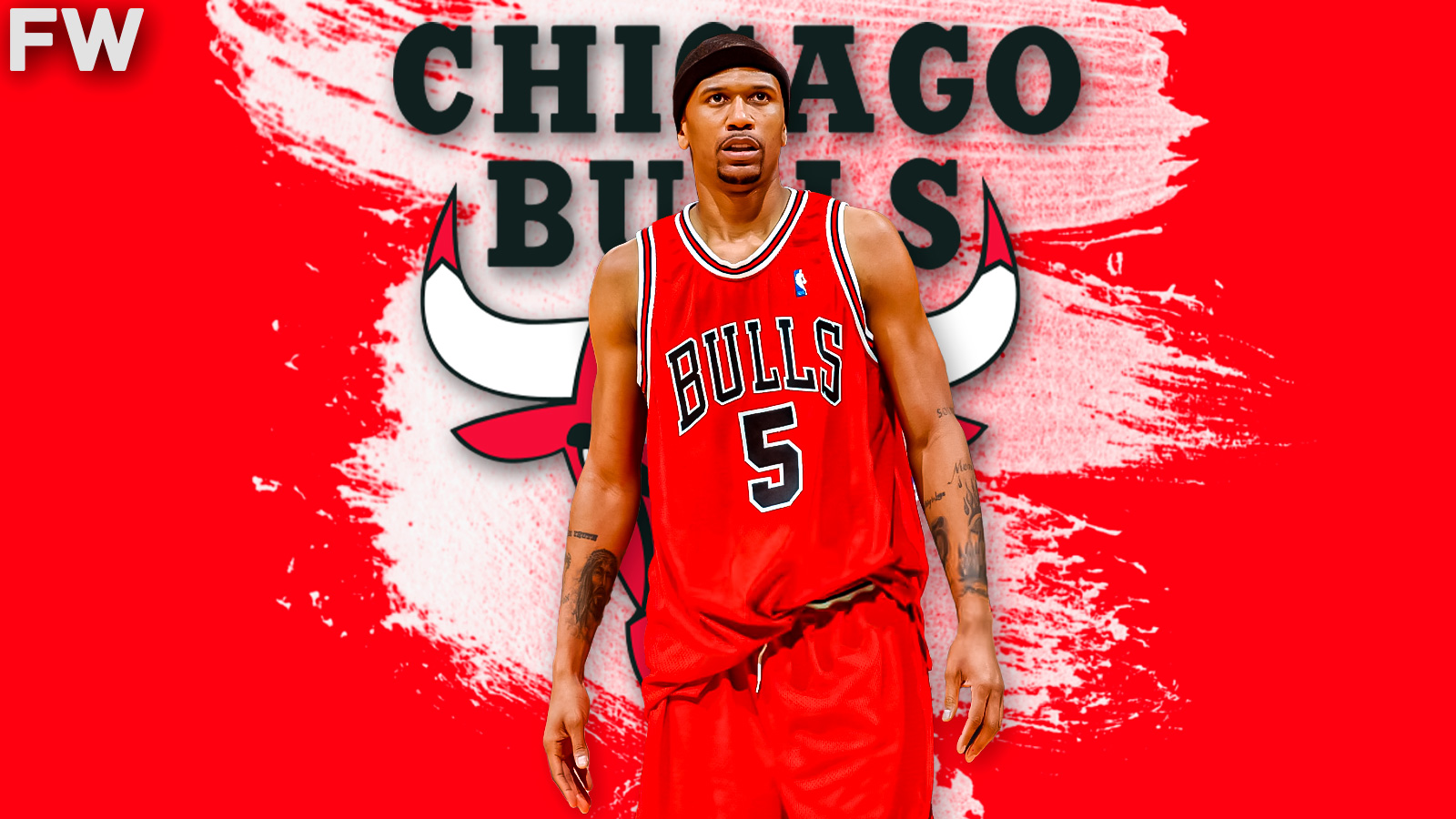
The Bulls would begin the 2001-02 season 4-21 resulting in the dismissal of Tim Floyd from the head coaching position. They would turn to Bill Berry for two games before giving the duties to former center Bill Cartwright for the rest of the season. Cartwright would help the Bulls go 17-38 over their last 55 games as they suffered their fourth straight season without playoff basketball.
Leading the way for the Bulls in the scoring department would be midseason trade acquisition Jalen Rose. The Bulls had acquired Rose, Travis Best, and Norm Richardson in exchange for Ron Artest, Ron Mercer, Brad Miller, and Kevin Ollie. Rose would average 23.8 points per game in 30 games for the Bulls while shooting 47.0% overall and 37.0% from beyond the three-point line.
2002-03 Season – Jalen Rose – 22.1 PPG
Bill Cartwright would remain the Bulls’ coach for the 2002-03 season after a somewhat promising finish to the 2002 season. However, not even Cartwright’s leadership could help the Bulls establish themselves in a tough Eastern Conference as they would go on to win just 30 games. While it would be their best overall season since Jordan, Pippen, and Coach Phil Jackson departed the team, it would not be nearly enough to earn a playoff spot.
Once again leading the charge for Chicago was veteran guard Jalen Rose. In 2003, Rose would average 22.1 points per game on 40.6% shooting overall and 37.0% shooting from three. Beyond Rose, only Donyell Marshall, Jamal Crawford, and Marcus Fizer would average double-digits in the scoring department with none of them going for over 14.0 points per game. The Bulls had missed their fifth straight NBA playoff berth, a trend that was likely to continue until they made some serious changes.
2003-04 Season – Jamal Crawford – 17.3 PPG
As great of a player as we have all come to know Jamal Crawford to be, it is never a good sign when your team’s leading scorer is averaging less than 17.5 points per game. The 2004 season started with Bill Cartwright still at the helm who would go 4-10 before being dismissed in favor of interim coach Pete Myers. After two losses from Myers, the team would turn to Scott Skiles who did everything he could to steer the ship.
The Bulls did not respond, going just 19-47 over their last 66 games. Crawford led their team in scoring with 17.3 points per game on 38.6% shooting overall from the field. Four other Bulls players would average 10.0 points per game or more including youngsters Eddy Curry, Kirk Hinrich, and Jannero Pargo. Other than Hinrich earning All-Rookie honors with 12.0 points, 6.8 assists, and 1.3 steals per game, there was nothing to celebrate for Chicago in 2004 as they finished the year with a 23-59 record overall.
2004-05 Season – Eddy Curry – 16.1 PPG
The 2004-05 season ushered in the era of the Baby Bulls which included Kirk Hinrich, Ben Gordon, Tyson Chandler, Chris Duhon, and Luol Deng. All five of these players were under the age of 22 entering the season other than Hinrich who was just 24 years old himself. Under coach Scorr Skiles, the Bulls would shock the world with a 47-35 season, breaking their seven-year stretch of missing the playoffs.
Leading the way for Chicago in the scoring department was former first-round pick Eddy Curry, He would average 16.1 points per game in 63 games played while shooting 53.8% from the floor. Rookie Ben Gordon would earn Sixth Man of the Year honors averaging 15.1 points per game in 79 games off the bench and just three starts.
In the NBA playoffs, the Bulls would have a first-round matchup with the Washington Wizards. In that series, Hinrich would lead the team with 21.2 points per game on 45.0% shooting overall and 51.5% from three on 33 attempts. As well as Chicago played, the Wizards would advance in six games led by Gilbert Arenas and Larry Hughes who each averaged over 22.0 points per game in the series.
2005-06 Season – Ben Gordon – 16.9 PPG
The Baby Bulls would take a slight step backward as a unit in 2005-06, but not bad enough for them to miss the playoffs once more. Still, under Scott Skiles’ coaching, the Bulls would finish an even 41-41 on the season with the 23rd-ranked offense in the NBA which they offset with a top-10 defense in the league at the time.
Second-year guard Ben Gordon who was now more of a starter than not would lead the team with 16.9 points per game on 42.2% shooting overall and 43.5% shooting overall. Hinrich added 15.9 points per game as well, and Luol Deng and Andres Nocioni were the only other two players to average at least 10.0 points per game for Chicago.
Even with the 41-41 record, the Bulls advanced to the NBA playoffs for a first-round matchup with the Miami Heat. The Bulls would give Miami everything they could handle that season even as they were armed with Shaq and a young Dwyane Wade. In the series, Nocioni, Hinrich, and Gordon would all go for over 20.0 points per game but Miami would still prevail in six games. I guess Chicago could take solace in the fact that they took a loss to the future NBA champions but for a town seeking their first championship since 1998, it wouldn’t be enough by a long shot.
2006-07 Season – Ben Gordon – 21.4 PPG
Things would get better for the Bulls in 2007 as the Baby Bulls were babies no more and began to mature into a well-rounded unit. During the regular season, Ben Gordon would lead the team once again in scoring with 21.4 points per game as well as 3.1 rebounds, and 3.6 assists per game. Still, under the direction of Scott Skiles, Chicago would win 49 games and head toward the NBA playoffs once again.
In the first round of the playoffs, the Bulls would complete the biggest upset of the year, knocking off the defending champion Miami Heat in a dominant four-game sweep. They were led by 26.3 points per game from Luol Deng and 25.5 points per game from Ben Gordon.
In the second round, they would face off against a tough Detroit Pistons team. Although they would put up a great fight, the Bulls would be dismissed in six games despite 19.5 points per game from Deng and 17.0 points per game from Gordon.
2007-08 Season – Ben Gordon – 18.6 PPG
For the third straight season, Ben Gordon would lead the Bulls in scoring with 18.6 points per game. It started off quite rocky for Chicago as they went 9-16 over their first 25 games and promptly dismissed Scott Skiles as coach. After one game at the helm from Pete Meyers, the team would bring in Jim Boylan who would go 24-32 over the team’s final 56 games.
The Bulls were right back to where they were just a few seasons prior as they finished the year with a 33-49 record, missing the NBA playoffs entirely. Six different players other than Gordon would average at least 10.0 points per game for Chicago. However, it would not be enough to earn them another playoff berth. Little did they know that during the offseason, Chicago would earn the first overall pick in 2008 and land a franchise-changing superstar at the top of the draft.
2008-09 Season – Ben Gordon – 20.7 PPG
https://www.youtube.com/watch?v=DeXSbSCH1_k
With their first overall selection in the 2008 NBA Draft, the Bulls would make one of the best draft picks in team history when they decided to select point guard, Derrick Rose. Although he wouldn’t lead the Bulls in scoring as a rookie, it was clear from day one whose team it was going to be in no time. Rose would be the Rookie of the Year with 16.8 points, 3.9 rebounds, and 6.3 assists per game.
Chicago’s leading scorer would be Ben Gordon once again with 20.8 points per game on 45.5% shooting from the field. John Salmons also contributed 18.3 points per game as well. The Bulls would finish with a 41-41 record and sneak into the NBA playoffs. There, the Bulls would meet the defending champion Boston Celtics. The Bulls would push the series to seven games led by 24.3 points per game from Gordon and 19.7 points per game from Rose.
Although they would lose the series, the Bulls could look forward to the future with Rose only getting better and the team rallying around him in a big way.
2009-10 Season – Derrick Rose – 20.8 PPG
https://www.youtube.com/watch?v=WCEVxlb82F4
The 2009-10 season would not be much different for Chicago in the win-loss column but as far as their future, it was all up from here. Derrick Rose would earn his first All-Star appearance while leading the Bulls in scoring with 20.8 points per game. Rose would shoot 48.9% from the field and add 6.0 assists per game to his total.
The Bulls would advance to the NBA playoffs with another 41-41 season but unfortunately drew the challenge of playing against LeBron James and the Cavaliers in the first round. The series would not be close as LeBron and the Cavaliers ran through the Bulls in just five games. Rose would average 26.8 points and 7.2 assists per game but it wasn’t enough to overcome the firepower coming from Cleveland.
2010-11 Season – Derrick Rose – 25.0 PPG
The 2010-11 season would be a historic one for Derrick Rose and the Chicago Bulls. Despite lingering injuries to both Carlos Boozer and Joakim Noah, Rose led the Bulls to a 62-win season, the most since Michael Jordan left the Bulls in 1998. Rose would also go on to become the youngest MVP in NBA history for his efforts with 25.0 points per game on 44.5% shooting along with 7.7 assists and 1.0 steals per game.
Rose’s leadership was exactly what the Bulls needed heading into the NBA playoffs. Rose would lead the Bulls to wins over the Pacers and the Hawks in their first two rounds with an 8-3 overall record. In the Eastern Conference Finals, the Bulls were set to face off against the Miami Heat armed with LeBron James, Dwyane Wade, and Chris Bosh.
As great as the series was supposed to be, it would end exactly how the Bulls’ last series against LeBron James went, and that is with a five-game series loss despite 23.4 points per game from Rose. At the time, nobody could have prepared for what would happen just one year later in Chicago but this would wind up being the best chance Chicago had at getting back to the NBA Finals.
2011-12 Season – Derrick Rose – 21.8 PPG
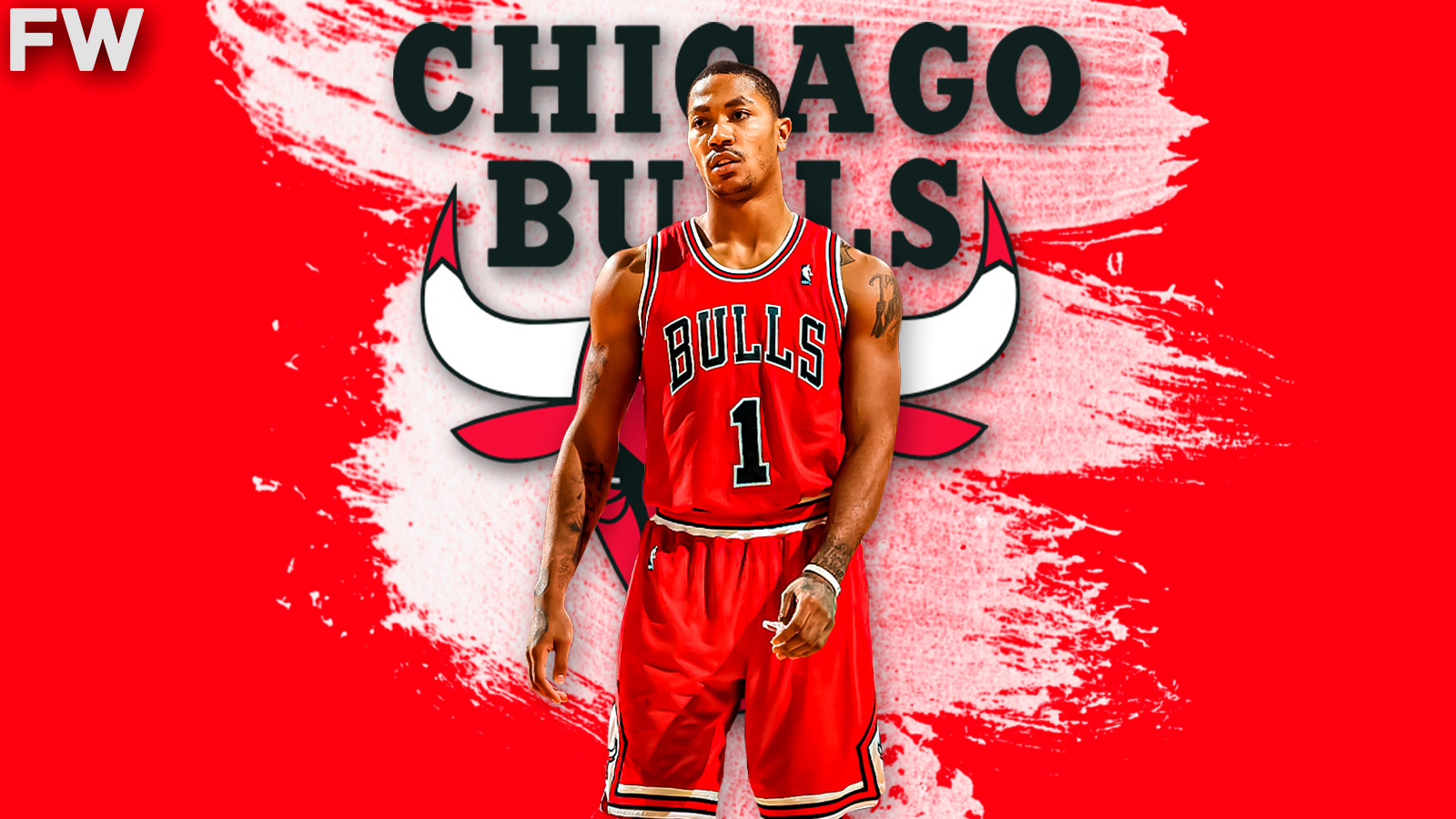
With the regular season shortened to 66 games due to a lockout, the Bulls capitalized with a 50-16 overall record. Rose once again led the charge for Chicago with 21.8 points and 7.9 assists per game. For Chicago, their incredible regular season would be all they would get as one of the most misfortunate happenings in team history would occur in the first round of the NBA playoffs.
In their first-round matchup against the Philadelphia 76ers, everything was going according to plan for Chicago. Late in Game 1 of the series, the Bulls were up big. So big, in fact, that their starters had no business being on the floor. In one swift motion on a cut to the basket with the ball in his hands, Rose crumpled to the floor in extreme agony. Just like that, Rose’s career and the future of the Chicago Bulls would be changed forever. Rose has torn his ACL and blew out his knee completely, placing a difficult path ahead for all parties involved.
2012-13 Season – Luol Deng – 16.5 PPG
With Derrick Rose set to miss the entire 2012-13 season, the expectations for the Bulls were extremely low. That’s to be expected when your on and off-court leader isn’t there to serve in his full role. However, under the leadership of Tom Thibodeau, and the play of Luol Deng, Carlos Boozer, and Joakim Noah, the Bulls were able to win 45 games and advance to the NBA playoffs once again.
Deng led the team with 16.5 points per game while Boozer was just behind him with 16.2 points per game. In the first round, the Bulls would win a tough seven-game series with the Nets led by 17.4 points per game from Carlos Boozer and 17.0 points per game from Nate Robinson. This set up a meeting with the Miami Heat.
The series would go just as well as Chicago’s previous two series against a LeBron James-led team went. It would be over in five games as the Heat went to their third NBA Finals in a row. The Bulls were able to get 15.0 points per game or better from Carlos Boozer, Nate Robinson, and Jimmy Butler but it was not enough to overcome the firepower of the Miami Heat’s Big Three.
2013-14 Season – Luol Deng – 19.0 PPG
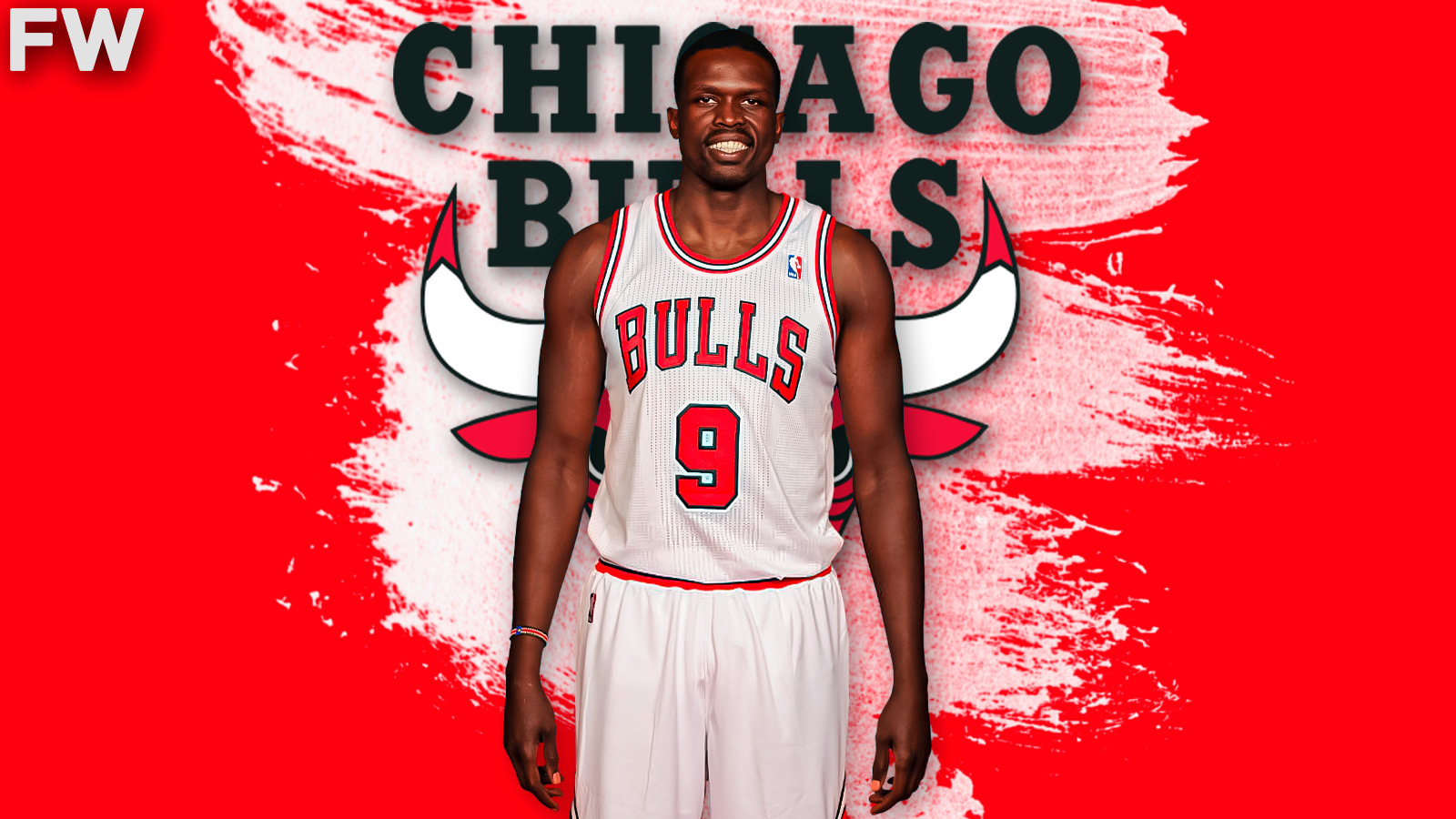
During the 2013-14 season, the Bulls would get a full team effort from top to bottom on their roster. Derrick Rose also returned from injury only to tear the meniscus in his opposite knee and miss the rest of the season after playing just 10 games. Luol Deng, Jimmy Butler, Joakim Noah, Mike Dunleavy, Taj Gibson, Carlos Boozer, and D.J. Augustin all contributed at least 10.0 points per game to help Chicago reach the playoffs with a 48-34 record overall.
Luol Deng was the team’s leading scorer by a long shot with 19.0 points per game. He shot 45.2% from the field while adding 6.0 rebounds and 1.0 steals per game as well. The Bulls would go into the playoffs preparing for a matchup with the Washington Wizards. However, Deng would be unavailable in the series due to injury which left Chicago with huge shoes to fill.
The Bulls were led by Taj Gibson with 18.3 points per game but could only muster one win against the Wizards led by Bradley Beal and John Wall. The series was over in five games as the Bulls had become stuck with the first round being their ceiling for quite some time now.
2014-15 Season – Jimmy Butler – 20.0 PPG
The Bulls would make a few moves in the 2014 offseason that would make them contenders in the upcoming season. They acquired Pau Gasol from the Lakers and brought in Aaron Brooks to be a spark off their bench. Both Gasol and Jimmy Butler would be All-Stars in the 2014-15 season giving the team their first All-Star duo in some time.
Jimmy Butler would begin to take the reins as the team’s leader with a 20.0 points per game season. Butler also averaged 5.8 rebounds, 3.3 assists, and 1.8 steals per game to help the team win 50 games and advance yet again to the NBA playoffs. In their first-round matchup with the Milwaukee Bucks, it would be Butler’s 24.8 points per game and Derrick Rose’s 19.8 points per game to lead them to a 4-2 series win.
This set up a matchup with their arch-enemy LeBron James and the Cleveland Cavaliers. Chicago would put up a valiant fight but would be dismissed in six games as the Cavaliers went on to win the Eastern Conference. Rose and Butler each averaged 21.0 points per game or more but it was not enough to get them past the powerful Cavaliers squad.
2015-16 Season – Jimmy Butler – 20.9 PPG
As we head into 2015-16, Jimmy Butler had become the clear-cut best player for Chicago with Rose returning after two knee surgeries. Butler would average 20.9 points per game and was the only Bulls player to reach the 20.0 points per game threshold. Butler earned his second straight All-Star appearance while also averaging 5.3 rebounds, 4.8 assists, and 1.6 steals per game.
Unfortunately for the Bulls, their 23rd-ranked offense was not enough to make them playoff-bound in 2015-16 as they finished ninth in the Eastern Conference with a 42-40 record. Pau Gasol and Derrick Rose were the only other two players for Chicago to average at least 15.0 points per game and Nikola Mirotic would be the only other player in double figures with 11.8 points per game.
2016-17 Season – Jimmy Butler – 23.9 PPG
The 2017 season would be another year for the Bulls in which they finished very middle-of-the-pack. Even the addition of Dwyane Wade from Miami and Jimmy Butler’s third straight All-Star season couldn’t prevent the Bulls from finishing right at 41-41 on the season. Once again, Butler led the way for his team with 23.9 points, 6.2 rebounds, 5.5 assists, and 1.9 steals per game.
With their .500 record, the Bulls advanced to the NBA playoffs and were set to meet the Boston Celtics in the first round. The series would be close as it advanced to six games but things fell in favor of Boston led by an incredible season from Isaiah Thomas. Butler led the Bulls in scoring with 22.7 points per game in the series but only Dwyane Wade would back him up with over 15.0 points per game which was not going to be enough to erase the Celtics’ magic.
2017-18 Season – Nikola Mirotic – 16.8 PPG
The 2018 season would be a disaster for the Bulls as they began to rebuild from the fallout after the Derrick Rose era. They would trade Jimmy Butler to the Minnesota Timberwolves that summer which landed them Zach LaVine in return. Pau Gasol, Derrick Rose, Joakim Noah, and Rajon Rondo had all since moved on, leaving the team with a mix-and-match lineup nearly every night.
Despite playing just 25 games, Nikola Mirotic would lead the Bulls in scoring in 2017-18 with 16.8 points per game. LaVine would also only play 24 games and average 16.7 points per game on the season. Lauri Markkanen’s 15.2 points per game were the most by any player on the Bulls who played at least 60 games. The team would finish with an abysmal 27-48 record, missing the playoffs entirely under coach Fred Hoiberg.
2018-19 Season – Zach LaVine – 23.7 PPG
https://www.youtube.com/watch?v=j6BN27CWD8I
If the 2018 season was bad for the Bulls, the 2018-19 season was a complete disaster. The biggest takeaway from the season would be the emergence of Zach LaVine as a future All-Star and franchise player. He led the team with 23.7 points per game on 46.7% shooting overall and 37.4% shooting from three. Lauri Markkanen backed him up with 18.7 points per game but it wasn’t enough to help them improve from the year before.
The Bulls would win just 22 games to 60 losses during the 2019 season. With the 29th-ranked offense and 25th-ranked defense, the Bulls had no chance to compete in a very competitive Eastern Conference. Fred Hoiberg was dismissed after a 5-19 start to the year while Jim Boylen came in and finished the season with a 17-41 record. Not only was the talent on the court not living up to expectations but they were in desperate need of a real leader as a coach as well.
2019-20 Season – Zach LaVine – 25.5 PPG
Jim Boylen would remain on as coach for the 2020 season which would go down as one of the weirdest seasons in NBA history. The Bulls would play just 65 games before the season was put on hold due to the COVID-19 pandemic. In those 65 games, the Bulls would win just 22 games while again ranking in the bottom five on offense.
Zach LaVine was the lone bright spot for the Bulls with the first 25.0 points per game season since Derrick Rose’s MVP year in 2011. He averaged 25.5 points per game on 45.0% shooting overall and 38.0% shooting from three. He also added 4.8 rebounds, 4.2 assists, and 1.5 steals per game but the Bulls would finish 11th in the East at 22-43 without an invite to participate in the NBA Bubble restart in Disney World.
2020-21 Season – Zach LaVine – 27.4 PPG
https://www.youtube.com/watch?v=C8XTprjZeN0
As the Bulls sought to make moves to become legitimate playoff contenders once again, Zach LaVine was developing into a superstar before our eyes. It would be the best season of his young career as he went on to average 27.4 points per game on 50.7% shooting from the field and 41.9% from three. His 85.0% shooting is the only thing that stopped him from becoming the first Bulls player with a 50/40/90 season in team history.
During the season, the team would also acquire Nikola Vucevic from the Orlando Magic as they made the first move in building a legitimate contender around LaVine. Vucevic would average 21.5 points and 11.5 rebounds in 26 games for the Bulls but it was not enough to save their 2021 season. The team would finish with a 31-41 record on the year, missing the playoffs again in a 62-game shortened season.
2021-22 Season – DeMar DeRozan – 27.9 PPG
https://www.youtube.com/watch?v=weeXwDfOemw
During the 2021 offseason, the Bulls made a series of moves that would help them become contenders once again. They would acquire DeMar DeRozan, Lonzo Ball, and Alex Caruso via free agency, giving them an exciting squad for the year ahead. The DeRozan signing was labeled by many as one of the worst of the offseason which would end up being as wrong as it possibly could be once they took the court.
With game-winning shots and an MVP-caliber output, DeRozan led the Bulls to a 46-36 record and a trip back to the NBA playoffs. He would average 27.9 points per game on 50.4% shooting while also adding 5.2 rebounds and 4.9 assists per game. LaVine would also add 24.4 points per game as the Bulls finally had their duo who would lead them into the future.
In the NBA playoffs, their high hopes were short-lived thanks to a matchup with the Milwaukee Bucks. Chicago would fall in just five games to the defending champion Bucks who advanced on the shoulders of Giannis Antetokounmpo in just five games. DeRozan led the Bulls with 20.8 points per game while Nikola Vucevic and Zach LaVine each produced 19.0 points per game or slightly above in the series.
2022-23 Season – Zach LaVine – 24.8 PPG

After such a promising 2021-22 season, the 2023 campaign would be a massive disappointment. Guard Lonzo Ball would miss the entire season with a knee injury and the Bulls’ offense completely fell apart. The duo of Zach LaVine and DeMar DeRozan each averaged over 24.0 points per game as well as played over 74 games each but it wasn’t enough to fix the glaring holes in their attack.
Despite 24.8 points per game from LaVine on 48.5% shooting, and 24.5 points per game on 50.4% shooting from DeRpzan, the Bulls would finish under .5000 with a 40-42 overall record. Although they would qualify for the play-in tournament, they would fall to the Miami Heat for a chance to make the playoffs, 102-91.
Now, the Bulls face a ton of uncertainty heading into the future. Lonzo Ball is out for at least another six months while Zach LaVine is reportedly unhappy and seeking out of Chicago with the Bulls reportedly seeking to fulfill his desires. The future is full of question marks for this once-storied franchise but something tells me they will be back before anyone expects them to be.

